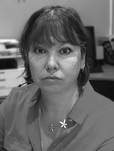Evolution of dance sport judging system with regard to objectivity
Фотографии:
ˑ:
PhD, Associate Professor N.F. Singina
Russian State University of Physical Education, Sports, Youth and Tourism (SCOLIPE), Moscow
In the course of development of dance sport, the judging system has been changed and improved in order to objectify the places won by dance couples and decide the winners. Since the contest result depends on the scores given by qualified judges in accordance with the established protocol, there are inevitable subjective factors that interfere with this procedure and can significantly affect the final result. In this view, the judging systems evolve towards objectification of the scores given by the panel of judges. The article considers the evolution of judging systems from the Skating System to the currently used JS 3.0 System and the approaches used in both systems as well as earlier JS 1.0/2.0 Systems to increase their objectivity. It was concluded that in the judging system, where competitive performance of dance couples is assessed by comparing them with each other, subjective scoring and inaccurate assessment are highly possible. Although judges are trained and licensed, they score subjectively, which is why the judging systems with strict rating parameters have an advantage in terms of objectivity. Here, however, it is still possible to influence judges who may give points that are inappropriate for certain performance components but minimized by introducing the method for determining the median value in the JS2.1 System and its later version JS 3.0.
Keywords: dance sport, judging system, performance components, skating system, JS 3.0.
References
- Astakhov V.N. Dlya chego nuzhen «Reyting Kachestva» [Why do we need "Quality Rating"]. [Electronic resource]. Available at: http://www.reiting-kachestva.ru/index.php/stati/72-dlya-chego-nuzhen-rej... Date of access: 17.12.2018.
- Zolotov M.I., Zakharova D.V. Razvitie tantsevalnogo sporta v Rossii [Development of dance sport in Russia]. Sovremenny futbol: tendentsii razvitiya, metodiki sportivnykh trenirovok, menedzhment i marketing [Modern football: development trends, methods of sports training, management and marketing]. Proc. joint conference of V.V. Kuzin Sports Management and Economics Department"and Theory and Methods of Football department, RSUPESYT»; RSUPESYT. M., 2016. pp. 68-76.
- Krukhmaleva K. Sovremennoe sostoyanie vida sporta «Sportivnye tantsy»: perspektivy vklyucheniya v programmu igr Olimpiady [Current state of dance sport: prospects for inclusion in Olympic Games programme]. Teoriya i praktika fiz. kultury. 2015. no. 12. pp. 77-80.
- Pazyna N.A., Singina N.F., Mikhaylov I.A. Novaya sistema sudeystva vsemirnoy federatsii tantsevalnogo sporta [New refereeing system of the World Dance Sport Federation]. Fizicheskaya kultura: vospitanie, obrazovanie, trenirovka. 2018. no. 1. p. 45.
- Skeyting sistema – pravila podscheta rezultatov [Skating system - rules for calculating results] [Electronic resource]. Available at: http://spdu.spb.ru/clubs/main/scating-system Date of access: 17.12.2018.
- Khoptenko K. Puti povysheniya ob'ektivnosti sudeystva sportivnykh balnykh tantsev [Ways to increase objectivity of judging sports ballroom dances]. [Electronic resource]. Available at: http://www.s-dance.ru/1main/docs/articles/kirh/8kh.htm Date of access: 17.12.2018.
- Grand Slam Series, Championships/Cups Multisport Event Format [Electronic resource]. Available at: https://www.worlddancesport.org/Document/33463342069/Judging_Systems_2.1... Date of access: 17.12.2018.
- Judging Systems [Electronic resource]. Available at: https://www.worlddancesport.org/Rule/Athlete/Competition/Judging_Systems Date of access: 17.12.2018.
- On The Absolute Scale of Perfection [Electronic resource]. Available at: https://www.worlddancesport.org/News/WDSF/On%20The%20Absolute%20Scale%20... Date of access: 17.12.2018.
- Prelević M. Judging system in dancesport. SPORT - Science & Practice. 2017. Vol. 7, no. 1. pp. 55-66.



 Журнал "THEORY AND PRACTICE
Журнал "THEORY AND PRACTICE